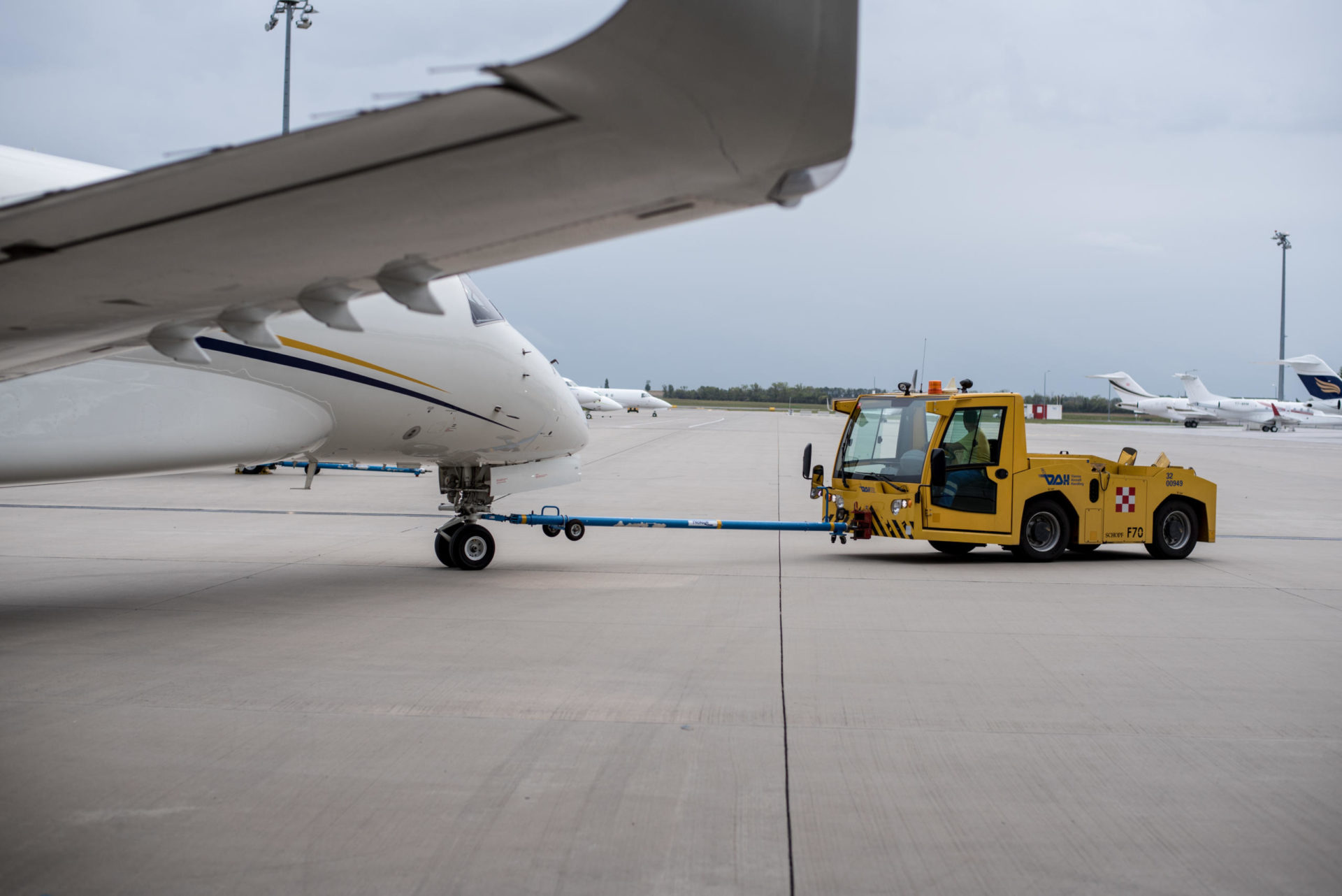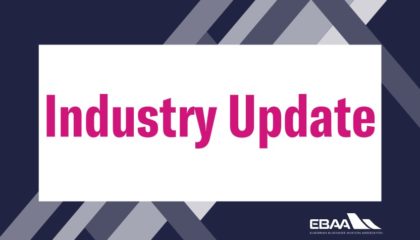
Germany: How is SAF implemented in the legislation of EU member states?
Whilst the Business aviation operators are committed to make their industry greener and sustainable and the ReFuel EU Aviation initiative of the European Commission is becoming more and more concrete, several national legislations already make the use of biofuel mandatory for the airlines.
This article is a contribution from Christine Kranich and Nils Zimmer of Arnecke Sibeth Dabelstein.
Although many practical issues emerge from the deployment of SAF which will have to be resolved to avoid a worse emissions profile and environmental impact than fossil fuels, SAF is deemed today as one of the most efficient ways in aviation to reduce CO2 emissions.
In this context, it is worth analysing the approach adopted by several EU Countries to encourage the use of SAF in the aviation sector.
The Aviation Lawyers Committee of EBAA, which comprises lawyers from many different European countries, has started to analyse the legal approach adopted at national levels. Whilst it already appears that some EU countries have not yet prepared any legislative tools to encourage the use of SAF, on the contrary, other member states have already amended their legislation.
The members of the Aviation Lawyers Committee will publish in the coming months a legal analysis of the legislation applying to SAF in different Member States. This second edition is for Germany.
Germany/ Legislation on SAF, how it works
Introduction
For the first time in the history of its greenhouse gas reduction legislation, Germany wants to introduce a minimum quota for the use of SAF from 2026 onwards. Notably though, this quota refers only to power-to-liquid fuels (P-t-L).
Legislation
Section 37a para. 2, para. 4a and sec. 37c para. 2 of the existing Federal Immission Protection Act (Bundes-Immissionsschutzgesetz) will be altered or newly inserted by the Act on the Further Development of the Reduction of Greenhouse Gas Emissions Quota (Gesetz zur Weiterentwicklung der Treibhausgasminderungs-Quote), hereinafter the “Act”.
The proposal for the Act was submitted by the federal government in February 2021 and passed the final parliamentary reading in the Bundestag on 20 May 2021. A final hearing in the Federal Council (Bundesrat) is to be expected in the summer of 2021, followed by enacting and proclamation of the Act. The final wording of the Act and its date of effectiveness are yet to be determined.
Mechanism
The obligation to safeguard the minimum quota is targeted at those entities placing jet fuel on the market as further defined in the German Energy Tax Act (Energiesteuergesetz). Operators of aircraft fueling vehicles are exempt; relevant is the fuel supplier who instructs the fuelling services provider.
The type of SAF to fulfil the minimum quota is defined as fuel generated from renewable energy of non-biological sources to replace traditional jet fuel. Specifications for such fuel will be laid down in secondary law, presumably one of the Federal Immission Protection Ordinances (Bundesimmissionsschutz-Verordnungen). Basically, the legislator is looking only at electrofuels or P-t-L fuels, not SAF generated from biological feedstock or waste oils.
Obligated entities shall report to the relevant authority the annual quantities of such fuel placed on the market by them.
Targets
The minimum quota of such (non-biological, P-t-L) SAF for each fuel supplier in relation to its annual overall output is set at:
0.5 % from 2026 onwards
1.0 % from 2028 onwards
2.0 % from 2030 onwards
Penalty for shortfall
70 EUR per Gigajoule if the target is not met. This penalty is said to be calculated based on the marginal cost (i.e. the change in the total cost that arises when the quantity produced is incremented by one unit) of such fuels.
Reasoning of the legislator and legislative history
The German legislator acknowledges that the aviation industry will continue to rely on liquid fuels. Power-to-Liquid fuels are therefore regarded as an important technology in order to meet decarbonisation goals. The government is convinced that the obligation of the minimum quota is necessary to establish the use of these fuels and to incentivise establishment of production facilities. The mechanism for aviation fuels is derived from the existing mechanism for automotive fuels in order to minimise the additional efforts for both economy and administration.
The minimum quota for SAF is seen as one element of the national implementation of the EU’s RED II Directive (Directive (EU) 2018/2001 on the promotion of the use of energy from renewable sources). The federal government supports the EU’s initiatives and the minimum quota of P-t-L fuels in the – signalled but not yet published – EU Commission’s proposal for a new directive on alternative jet fuels. The government commits to re- assess the impact of the minimum quota on the German aviation industry in case no EU-wide minimum quota for P-t-L aviation fuels is introduced until 2026.
The proposal for the new Act did not include any specific reasoning as to why the quota is aimed only at P-t-L fuels and does not relate to the (already advancing) production of SAF from biological feedstock or waste oils. The opposition’s general criticism, that the government’s approach should be “technology neutral” rather than picking single technologies whose future success is hardly foreseeable, was rejected by the governing parties. The Federal Council (Bundesrat) specifically asked for a deletion of the “non-biological” criterion in the SAF definition. It reckoned that no ready-to-use technology should be excluded and referred to the national SAF legislation in other European countries. This quota could damage both aviation and fuel suppliers in the international competition. The Federal Council suggested a minimum quota of 2 % P-t-L and 3 % biologically derived SAF in 2030 and reliable perspectives for the following years. The government rejected these comments and proposals, stating that large amounts of biofuels are already used in the road sector and that the quota for P-t-L SAF is intended to support the development of the P-t- L technology instead of simply using cheaper biofuels.
Roadmap, industry and projects
In April 2021, the government and relevant stakeholders published a “P-t-L Roadmap” for SAF in Germany. The aim is to achieve a minimum annual production of 200,000 tons of P-t-L jet fuel until 2030, which equals 2 % of the German jet fuel sales in 2019. The aim is linked to the “National Hydrogen Strategy”. A list of projects showcases the numerous studies, plans for production and supply facilities at or near airports, research & development projects of the industry and universities as well as innovation hubs.
Many of the German key players in the aviation industry, ranging from manufacturers, fuel suppliers, research institutes to authorities, are now members of “aireg” – the Aviation Initiative for Renewable Energy in Germany.
In May 2021, the Federal Ministry of Transport issued a Guideline for Measures facilitating the Development of Renewable Fuels. The budget amounts to EUR 640 million.
On 18 June 2021, Chancellor Merkel, ministers, presidents of aviation associations and top managers from the industry will meet at the National Aviation Conference 2021, whereby the agenda includes sessions with the title “Political Support for Zero Emissions Flying” and “The way ahead – Germany as technology leader for green flying”.
The Aviation Lawyers Committee (AMAC) Committee
The Aviation Lawyers Committee (AMAC) Committee is composed of lawyers who come from different European jurisdictions and who have a recognised expertise in Business aviation.
The objectives of the Aviation Lawyers Committee (AMAC) are to identify legal and regulatory matters which need special attention on a European level by researching relevant issues and comparing legal solutions found in different European countries.
The Committee also aims to develop tools on topics of interest in collaboration with the other AMAC committees, organise events (such as seminars and training) and promote networking activities amongst the members of the committee.




